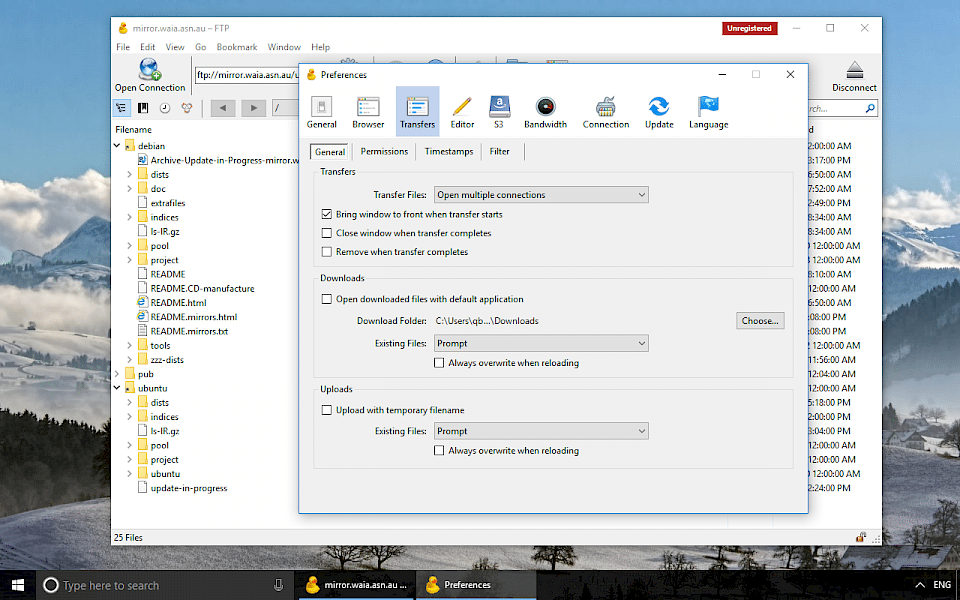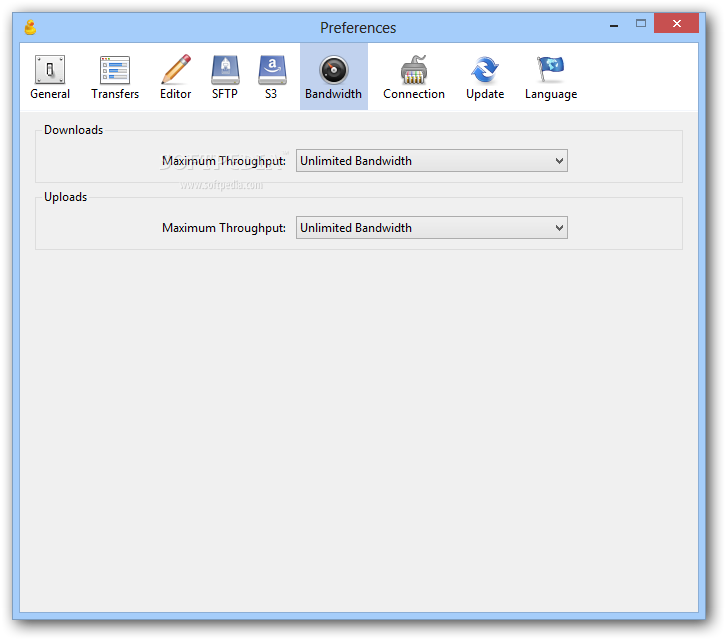

- #CYBERDUCK SECURITY ISSUES HOW TO#
- #CYBERDUCK SECURITY ISSUES FULL#
- #CYBERDUCK SECURITY ISSUES SOFTWARE#
- #CYBERDUCK SECURITY ISSUES CODE#
- #CYBERDUCK SECURITY ISSUES OFFLINE#
The user no longer has control over the information. But if those notes include sensitive data - an organization’s intellectual property or sensitive customer information, for instance - it enters the chatbot library. And anything in the chatbot’s memory becomes fair game for other users.įor example, chatbots can record a single user’s notes on any topic and then summarize that information or search for more details. The AI technology stores vast amounts of data and then uses that information to generate responses to questions and prompts.

Mark McCreary, the co-chair of the privacy and data security practice at law firm Fox Rothschild LLP, told CNN that ChatGPT and chatbots are like the black box in an airplane. However, the incident could be a harbinger of the risks that could impact chatbots and users in the future.Īlready there are privacy concerns surrounding the use of chatbots. The data leakage in ChatGPT was addressed swiftly with apparently little damage, with impacted paying subscribers making up less than 1% of its users. Read the Cost of a Data Breach Report AI, Chatbots and Cybersecurity
#CYBERDUCK SECURITY ISSUES FULL#
Full credit card numbers were not exposed at any time,” OpenAI said in a release about the incident. “It was possible for some users to see another active user’s first and last name, email address, payment address, the last four digits (only) of a credit card number and credit card expiration date. As the researchers from OpenAI dug in deeper, they discovered this same vulnerability was likely responsible for visibility into payment information for a few hours before ChatGPT was taken offline. However, that was only a surface-level incident. But even a minor cyber incident can create a lot of damage. In the grand scheme of things, the ChatGPT exploit was minor, and OpenAI patched the bug within days of discovery. Threat actors know that which is why attacks on open-source libraries have increased by 742% since 2019. Because thousands of contributors develop and access open-source code, it’s easy for vulnerabilities to open up and go unnoticed. OpenAI uses Redis to cache user information for faster recall and access.
#CYBERDUCK SECURITY ISSUES CODE#
Open-source libraries are used “to develop dynamic interfaces by storing readily accessible and frequently used routines and resources, such as classes, configuration data, documentation, help data, message templates, pre-written code and subroutines, type specifications and values,” according to a definition from Heavy.AI. This allowed users to see the chat history of other active users. In the case of ChatGPT, the exploit came via a vulnerability in the Redis open-source library. Whenever you have a popular app or technology, it’s only a matter of time until threat actors target it. One cybersecurity analyst compared ChatGPT to a Swiss Army knife, saying that the technology’s wide variety of useful applications is a big reason for its early and quick popularity.

Compare that to another extremely popular app - TikTok - which took nine months to reach similar user numbers. Approximately 13 million people used the AI technology daily within a full month of its release. Despite its imperfect responses (some of its prose was clunky or clearly plagiarized), ChatGPT quickly became the fastest-growing consumer app in history, reaching over 100 million monthly users by January.
#CYBERDUCK SECURITY ISSUES SOFTWARE#
Everyone from writers to software developers wanted to experiment with the chatbot. An Overnight SuccessĬhatGPT’s popularity was evident from its release in late 2022.
#CYBERDUCK SECURITY ISSUES OFFLINE#
The breach took the service offline until it was fixed. OpenAI, which developed the chatbot, confirmed a data breach in the system that was caused by a vulnerability in the code’s open-source library, according to Security Week. Instead of attackers using ChatGPT to cause cyber incidents, they have now turned on the technology itself. It now seems that the tables have turned.
#CYBERDUCK SECURITY ISSUES HOW TO#
In fact, it didn’t take very long until threat actors figured out how to bypass the safety checks to use ChatGPT to write malicious code. When ChatGPT and similar chatbots first became widely available, the concern in the cybersecurity world was how AI technology could be used to launch cyberattacks.


 0 kommentar(er)
0 kommentar(er)
